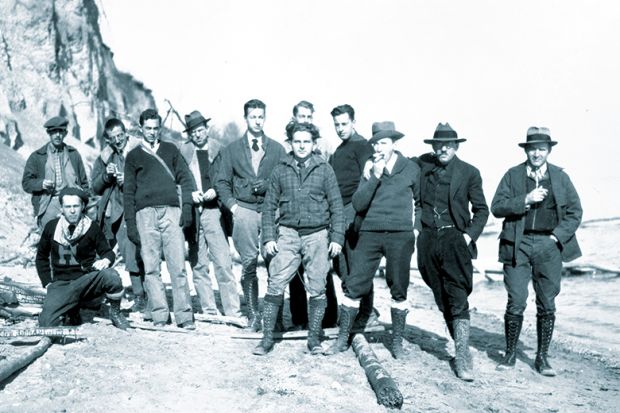One of the UK’s leading geographers has warned that his discipline is still seen as a “soft option” by less bright school-leavers from privileged backgrounds.
Geography departments in British universities need to do far more to address their origins in imperial times and the fact that their students have “some of the narrowest and poshest social profiles” to be found in any academic discipline, writes Danny Dorling, Halford Mackinder professor of geography at the University of Oxford, in a recent article in Emotion, Space and Society.
When a new School of Geography was established in Oxford in 1899, he writes, The Times made it clear that “this was to ensure that there would be no future excuses of ignorance for the establishment’s efficient ‘conduct of the [British] Empire’s affairs’”. The subject soon acquired a somewhat macho image: “Geographers are ‘tough’, they climb mountains, they are still explorers, they are more robust, more rigorous and more ‘out there’ than other academics, and thus that legacy of toughness of attitude still endures.” Since the 1970s, when pupils at public schools were increasingly expected to go to university, it has also come to be seen as “a soft option for [privileged pupils who are] not actually that good at maths, or writing, or reading, or science, or imagination”.
Although geographers may teach their students about climate change, species extinction and global inequalities, Professor Dorling’s article goes on, “many of them…head out to banking, advertising and management and make the world an even worse place, armed with the knowledge of what they might be critiqued for by those who taught them, but never convinced them”.
Geography remained, he continues, “the favourite subject of those who create hostile environments for immigrants, who create political parties that border on the fascist, of war-mongers, bankers and imperialists”.
The only way to change this, the article, titled “Kindness: a new kind of rigour for British geographers”, concludes, is for “what was once the core subject of imperial domination [to] be turned inside-out and upside-down”.
So what might this mean in practice?
Professor Dorling told Times Higher Education that he would like to see more geography teaching in schools in poorer parts of the country, so that “people come and study it because they really want to study geography, not because they have to go to university and it’s an attractive option”.
Although geographers “think they are ever so aware”, he added, he would like them to “step back and look at the output of modern geography journals, where there’s still a taint of superciliousness – we understand so much from our position on high. And in a way that’s an echo of: ‘We can train someone to govern the whole of Nigeria.’”
It would also be good, in Professor Dorling’s view, for geography as a discipline to become much more international.
“Most of the world doesn’t have many geography departments,” he explained. “It really is a very British-centred thing and those departments outside Britain tend to be in ex-colonies. If it was a more international subject, our journals would be full of people writing from different places, whereas they tend to be dominated by British and American voices. When you look at subjects like politics and sociology, which are much more international, they are tempered by that.”
Register to continue
Why register?
- Registration is free and only takes a moment
- Once registered, you can read 3 articles a month
- Sign up for our newsletter
Subscribe
Or subscribe for unlimited access to:
- Unlimited access to news, views, insights & reviews
- Digital editions
- Digital access to THE’s university and college rankings analysis
Already registered or a current subscriber? Login








